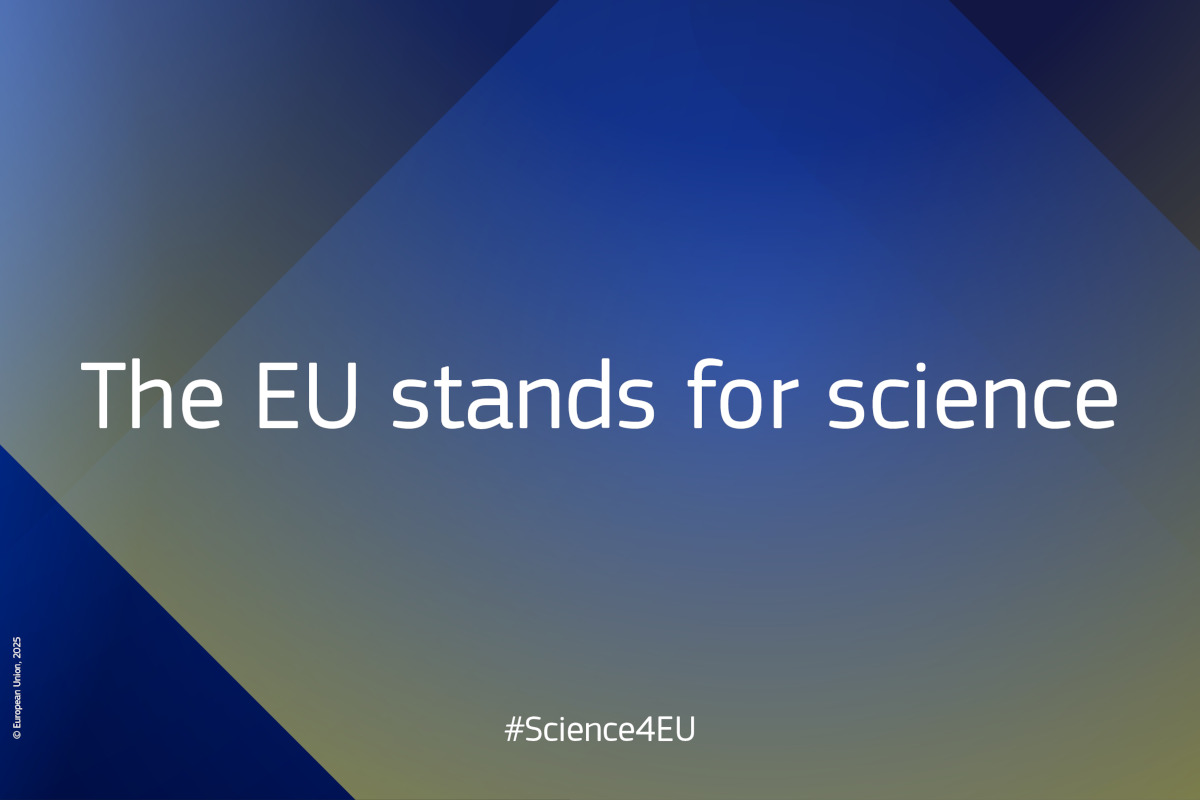EU-funded researchers are using AI to transform nuclear technology, making medical scans safer, streamlining nuclear plant maintenance and allowing earlier prediction of earthquakes.
Special series

Science4EU
The Science4EU campaign shows how the EU stands for science. It shines a spotlight on the scientists, researchers, and innovators working with EU support to improve our lives and shape a better future for everyone.
Do you also stand for science?
More stories

The human brain is more powerful and energy-efficient than any computer. Scientists are imitating the way it works to produce better computer chips and help deal with the growing amounts of data generated every day.
Most popular
-
1By Andrew Dunne
-
2
-
3
-
4By Michaela Nesvarova
-
5By Ali Jones
Top videos
Rethinking green investment for Europe’s next chapter: a stakeholder’s vision
23 June 2025
Smarter science: staying one step ahead of the next pandemic
18 June 2025
Past articles
The inspiration to use Earth’s abundant supply of water as a source of hydrogen fuel is not new. But will it fuel the future? Meet two leading European innovators who are championing clean hydrogen as a key solution in building de-carbonisation strategies.
People with a disability can look forward to many new advances in technology to make their lives easier while navigating public transport systems, or even crossing the street, thanks to several new initiatives in Europe.
Coronavirus will not be the last pandemic in our lifetime. Scientists warn the threat posed by zoonoses – infectious diseases that jump from animals to humans – is on the rise. And the risk of a new pandemic is higher now than ever before.
The idea of putting furniture on wheels has been around for hundreds of years. From a custom-built chair with four small wheels used by King Phillip II of Spain in the 16th century to a German paraplegic watchmaker’s wheelchair with a geared front wheel and hand cranks unveiled in 1665, the innovation never stops.
By growing just one crop species in a field at a time, monocultures enable farmers to use machinery, increasing the efficiency of activities like planting and harvesting. But despite supplying the lion’s share of the world’s food, monocultures are amongst the most controversial features of today’s agriculture.
As the world's newest Nobel Prize laureates gather for Nobel Week, EU Commissioner Mariya Gabriel speaks about the incredible advancements made by scientists and the EU's commitment to creating more tech unicorns.
Groundbreaking discoveries about gravitational waves, black holes, cosmic rays, neutrinos and other areas of cutting-edge astronomy may soon become more frequent due to the convergence of two major communities of astronomers in a fresh project.
Advances in assistive technology have removed many access barriers for people with vision loss. But it’s the development of visual prosthesis that has the potential to offer a whole new way of ‘seeing’ the world.
The use of technologies for the inclusion and empowerment of persons with disabilities is not new – from the creation of Braille and the first hearing aid to the invention of the wheelchair. For disabled persons, new assistive technology can make all the difference.
‘For too long, the lived experiences and voices of disabled people have not been at the heart of research and policymaking,’ said Eilionóir Flynn, one of Europe’s top researchers in the field of disability rights.
What to do with the non-biodegradable plastics used in food packaging and agriculture? Researchers are turning their attention to microorganisms, enzymes, earthworms and insects to break down plastics.
If we thought we could build our way out of the climate and biodiversity crisis with more advanced human technology, the Covid-19 pandemic taught us that we are far more vulnerable to the powers of nature than we previously dared to admit, and that working with instead of against nature is the only way forward.
Research and innovation projects are turning green challenges into opportunities to spur Europe’s recovery from the coronavirus crisis.
Food waste has reached colossal proportions and the magnitude of the problem requires equally massive resources with the potential to supply sustainable answers. What better than the dynamic digital databases and advanced analytics we literally have access to “at our fingertips”.
Many future climate scenarios suggest that negative emissions will be needed to limit global warming. Researchers are now investigating how feasible this is.
Scientists are inching closer to revealing the elusive mechanisms that tiny marine species activate to transform organic contaminants in water into less toxic chemicals.
Climate models are used to predict how the climate will likely respond to rising greenhouse gas concentrations in the coming decades, a timescale crucial to meeting the terms of the Paris Agreement. That’s why it’s necessary to keep developing and refining such models to better support climate policies.
Researchers are finding ways to ensure we have a sufficient supply of the raw materials needed to make everything from laptops to satellites. We look at the high-tech geomodels that could lead Europe into a more secure and independent future.
Great achievements in science don’t just happen – they’re created. This is the story of how a formidable research alliance was born and how it resulted in a discovery that would forever transform the diagnosis and treatment of blood and bone marrow cancers.
November marks the 25th anniversary of the Marie Skłodowska-Curie Actions (MSCA) programme that has funded the research of about 145,000 PhDs and postdocs in Europe and beyond, and equipped them with new knowledge and skills. Recipients discuss how the MSCA were a stepping stone to excelling in academia and industry.





























